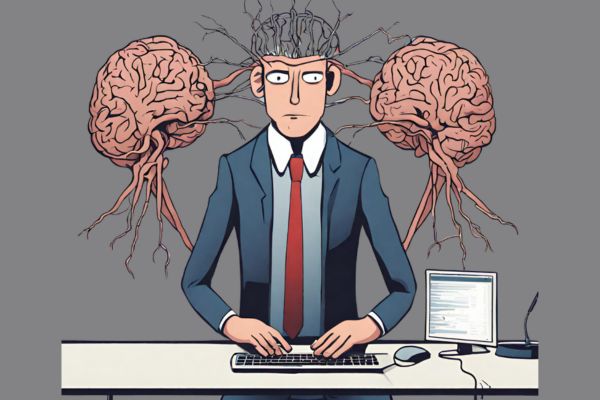
Traders are humans. As humans, we have the tendency to fall prey to cognitive biases that can affect our behavior.
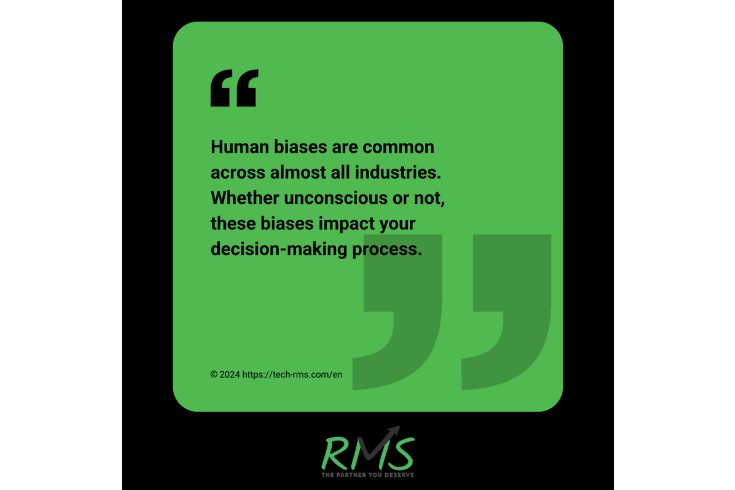
When it comes to trading, maintaining objectivity when making decisions is crucial. A wrong judgment call influenced by human biases can spell the difference between profits and losses.
Using Expert Advisors (EAs) can help you limit – if not completely avoid – the influence of these biases when trading.
In this article, you’ll learn the cognitive biases that can affect your trades and how using an EA can help you avoid these.
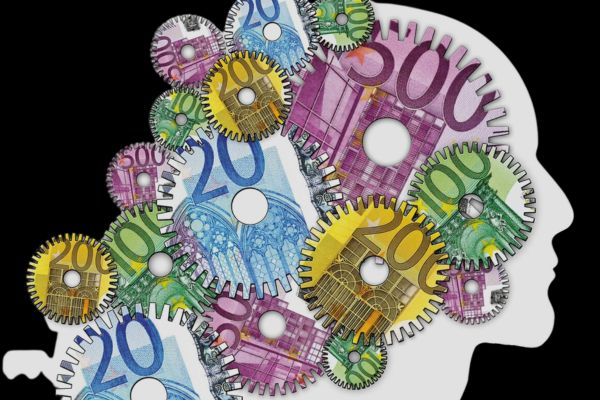
Understanding Trading Psychology: Human Bias in Trading
Human biases – specifically, cognitive and emotional biases – are unconscious patterns in your thought process that can lead to irrational decisions. These patterns can arise from your beliefs and emotions.
Cognitive biases can arise from your personal preferences, experiences, heuristics, and mental limitations. They can impact your perception, memory, and problem-solving capabilities.
For instance, confirmation bias can lead you to look only for information supporting your thoughts or opinions and ignore others that don’t.
On the other hand, emotional biases occur when your decision-making process is influenced by greed, fear, or excitement. In short, these biases arise from your mood or how you feel in the moment. These emotions can lead to impulsive actions or inaccurate risk and reward perceptions.
An example of emotional bias’ affecting decisions is when an irrational fear of losing keeps you from making trades you could have profited from.

Cognitive Biases That Can Harm Your Trades
Below are examples of human biases that can be harmful to your trades.
1. Confirmation Bias
Confirmation bias refers to a trader’s tendency to look only for information that confirms what he already knows or wants to believe.For example, a trader who thinks the market is entering a bullish period will only read market analyses that support his view. He may see signs that the market is actually bearish, but he will ignore them and consider them outliers.
By ignoring objective indicators of a bearish market, the trader can end up making trades that will only end in losses.
2. Hindsight Bias
Traders who think recent market events were more easily predictable than they were may be guilty of hindsight bias.In this type of cognitive bias, a trader will think he knows all along where the market is headed after it has already moved. The trader will falsely believe he can accurately predict price movements and may overestimate his ability to anticipate the market’s direction.
This misconception can lead to distorted decision-making and trading losses.
3. Illusion of Control Bias
Traders manifesting the illusion of control bias think they have a larger degree of control over trading outcomesthan they actually do.They may become overconfident in their own trading skills and think they can influence market movements.
As a result, traders exhibiting this type of cognitive bias will often take higher risks and end up with larger losses.
4. Availability Bias
Overreliance on recent and readily available data or trading experiences when making decisions is a sign of availability bias.A trader guilty of this type of bias will overlook or intentionally disregard historical data in favor of more recent ones.
As they only consider recent information, traders with availability bias can fail to comprehensively examine market trends and conditions. This can lead to flawed trading decisions founded on incomplete data.
5. Anchoring and Adjustment Bias
Similar to availability bias, anchoring and adjustment bias is characterized by a heavy reliance on particular information.A trader with this type of cognitive bias tends to base their trades solely on the initial piece of data they receive. They anchor any adjustments or changes to their trades on this initial data.
For instance, they may enter a trade knowing that the asset they’re trading is on a downward trend. Even when market conditions change, they will still base their decisions on the knowledge they have upon entering the position.
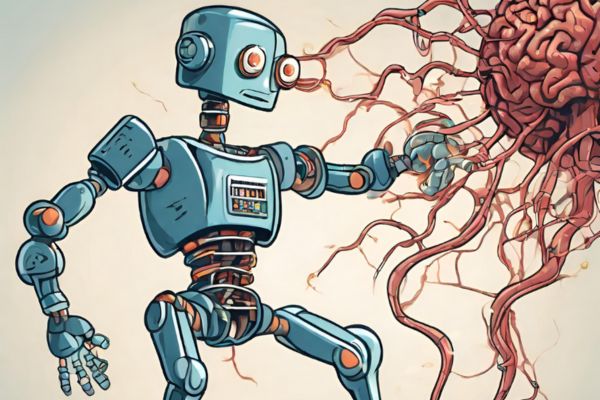
How Do Expert Advisors Remove Human Biases When Trading?
Expert Advisors, sometimes referred to as trading robots, are automated trading programs that help you remove human biases when trading.
Automated trading programs, as implied by their name, help automate your trades. You can program them to execute specific trading strategies or carry out orders depending on market conditions.
Aside from automating trades, Expert Advisors are useful for removing human biases in trading.
Here’s how these trading robots do this:
1. Objective Decision-Making
Expert Advisors operate using pre-determined rules and algorithms. This means that the decisions they make – and the signals they give you – are made using objective information.An EA doesn’t have preconceived beliefs and knowledge about market data; it analyzes market conditions as they happen and makes decisions using the information it gathers. Thus, it cannot fall prey to confirmation or hindsight biases.
2. Consistency
Expert Advisors manage and execute your trades according to how you programmedthem.
They will perform trades consistently and systematically, following their programmed instructions to the letter. As robots, EAs are not susceptible to the cognitive biases that can affect human traders.
3. Dynamic Strategies
Letting an Expert Advisor manage your trade can help you adapt to changing market conditions.EAs do not fixate on a specific piece of information. They analyze the broader market and adjust their strategies accordingly. This prevents you from becoming a victim of anchoring and adjustment bias.
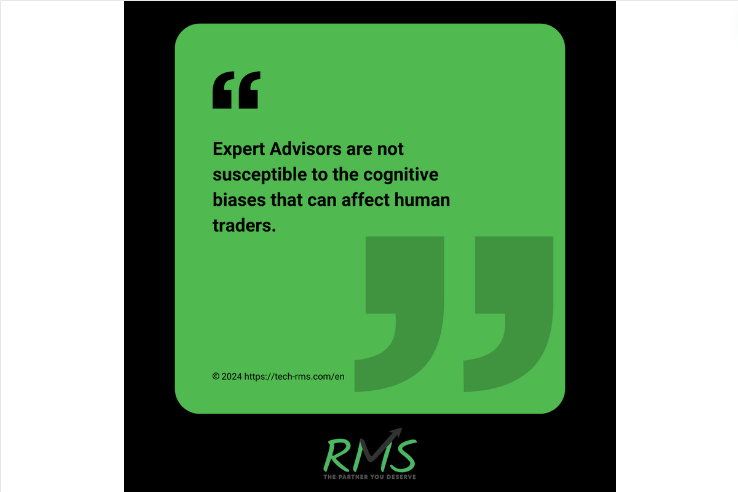
Do You Need Expert Advisors?
Cognitive biases aren’t the only human biases that can affect your trades. There are also emotional biases, which EAs also prevent.
Using Expert Advisors can give you a host of trading advantages. Aside from the benefits already outlined in this article, trading robots make you a more efficient trader.
If you’re looking for a reliable Expert Advisor, check out TradeBot, Tech-RMS’ dynamic, AI-powered trading robot.
